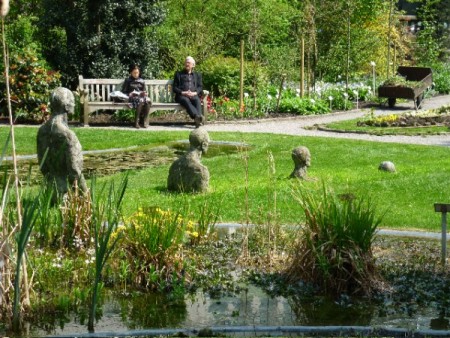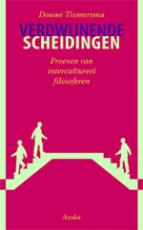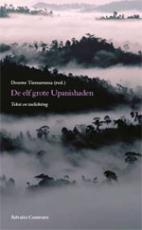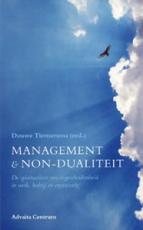Advaita Post 11-09 - If just once you shoot through...
Volume 11 No 9 (May 14, 2010)
---If just once you shoot through one of the thousands of openings into the openness---

What remains after the disappearance
Spring Experience (Part 3)
From a talk on March 17, 2010 in Gouda
If you want to realize the openness, then don't you have to see through death? Because as long as you see death as something real, fear appears to be there.
Even if you go for a nice walk in the spring?
And if I see a dead bird lying along the roadside ...
Can't there also just be enjoyment when you go outside?
If there is only enjoyment, indeed there is only enjoyment. But still there is always a lot of tension, so that the enjoyment can't be complete. And that tension has to do with death which you see as something real.
I point toward the moments of openness that you can recognize. If you recognize them, there is no need to return any more to an 'I' who is afraid of death. Take a look at how there is a natural breakthrough with that difficult attitude "I don't want to die and still I'm going to die." When you go outside in the springtime, that wall is not there. In such a natural situation, you can recognize the openness. That means a breakthrough to an aware acknowledgement of the existence of the openness.
If something of the ego gets reformed there, you're in trouble. That's clear. And that's the same for everyone. Then the direct path of the 'I'-person towards the liberated state is blocked. Still it's apparent that that naturalness can manifest itself once again at all different kinds of times and places. That is the most valuable event. If you recognize it as the most valuable, then there is an awareness of that recognition. Then you stay there with it and only say: "This, this, this ..." You do not let yourself become distracted. Then it continues on by itself and stabilizes. Your being-awareness is, and remains infinite. That remains so, even if there is an initial cause which is conditioned, for example, like wanting to go outside because it is beautiful. It also remains, when the conditions change again, for example when you return inside. You can meditatively stay in that open space of being-experience. Conditions don't form any particular obstacle to enlightenment, at least if you don't have a superstition to the contrary. Then that's great.
That sounds good, yes, but other people don't like it if you don't go along their definitions. At first I had no feeling for it, but now I have learned to satisfy them.
That's too bad because you could have learned something else. You could have also consciously remained naive. If you do that, then suddenly the others begin to look and become curious.
They can also harden themselves, since they can't stand it that you have withdrawn from their definitions.
That will only happen if you remain a person. If you are truly completely open, then the other person, who wants to exert force on you to do something, notices that it doesn't work. Because there is no counterforce from you as a person to maintain your position, everything remains open. Every orientation, every intention, always has two poles, that of the first person, as subject, and that of the third person, as object. When there is no resistance from the object, the whole situation changes. The intention that was focused on an object continues onward endlessly. And so the intention falls away. That means, at the least, a relief to the first person, the subject.
I'm with you there, but the cramping has become a habit. And I can imagine this. If as a child you are open and you are hurt, then an 'I' is formed, an 'I' as an illusion of protection.
But gradually you will grow up!
In the primary naiveté you are so very vulnerable, and you also receive patterns from the others who are looking after you. But when you are independent and consciously naive, you're free and there is no problem.
How are your horses?
They strongly invite remaining with the authentic experience.
Why?
Because they are what they are. That immediately reflects your own 'I' and your own will. You get yourself right back.
If, as an 'I', you're focused on a horse, then it doesn't seem to work.
No, it doesn't work.
So then in your orientation towards the object-side you experience an open sphere of being. Thus your entire focus falls away. So you, as an 'I', fall away.
Yes, certainly. I experience that.
So here, with an animal, you have a chance to immediately realize the openness. What happens then? I can, from my will, let you, as my horse, act and thus use you as an object, but then I notice that something else is going on. There is totally no 'I'. And then I really get in touch with that open being, it reverses and I merge together with the being of the horse.
Then you can communicate with the animals, like Saint Francis.
Still there is always a little separation. The disappearance of borders can radicalize itself. I can imagine that the best jockeys feel themselves to be one with the horse. They don't need to whip it anymore in order to get it to run any faster.
Why do adults find a newborn so adorable? Because there is no little 'I' there yet. All focus dissolves therein. It reverses; it lets their own 'I' dissolve and that feels good. That's why adults find babies so cute.
Do you see that you have openings to the openness everywhere? If just once you shoot through one of the thousands of openings into the openness…
A warm greeting to all,
Douwe Tiemersma
Er is geen tweeheid
als je ontspannen bent
in zelf-bewustzijn
is dat duidelijk.
Boeken
Douwe schreef en redigeerde gedurende zijn leven boeken. Via onze uitgeverij zijn deze nog verkrijgbaar.



